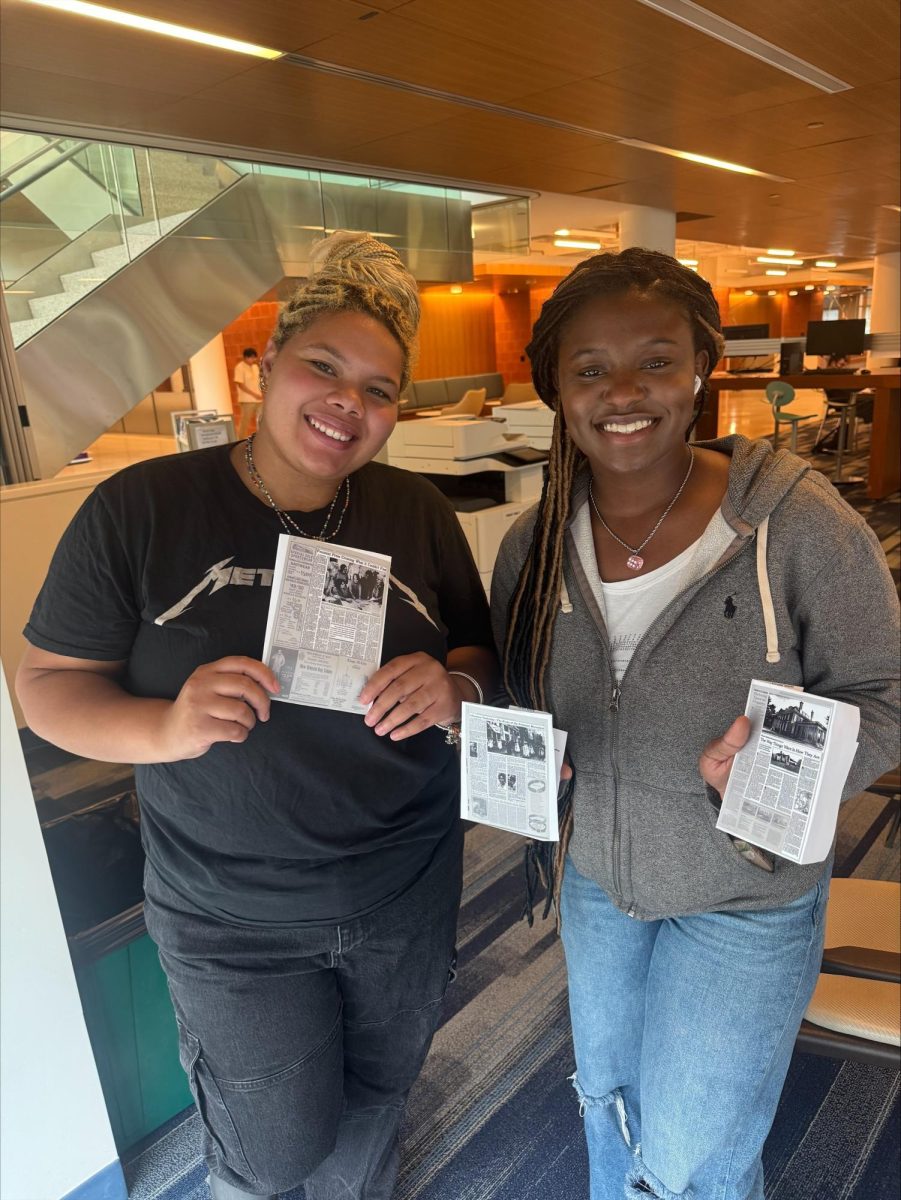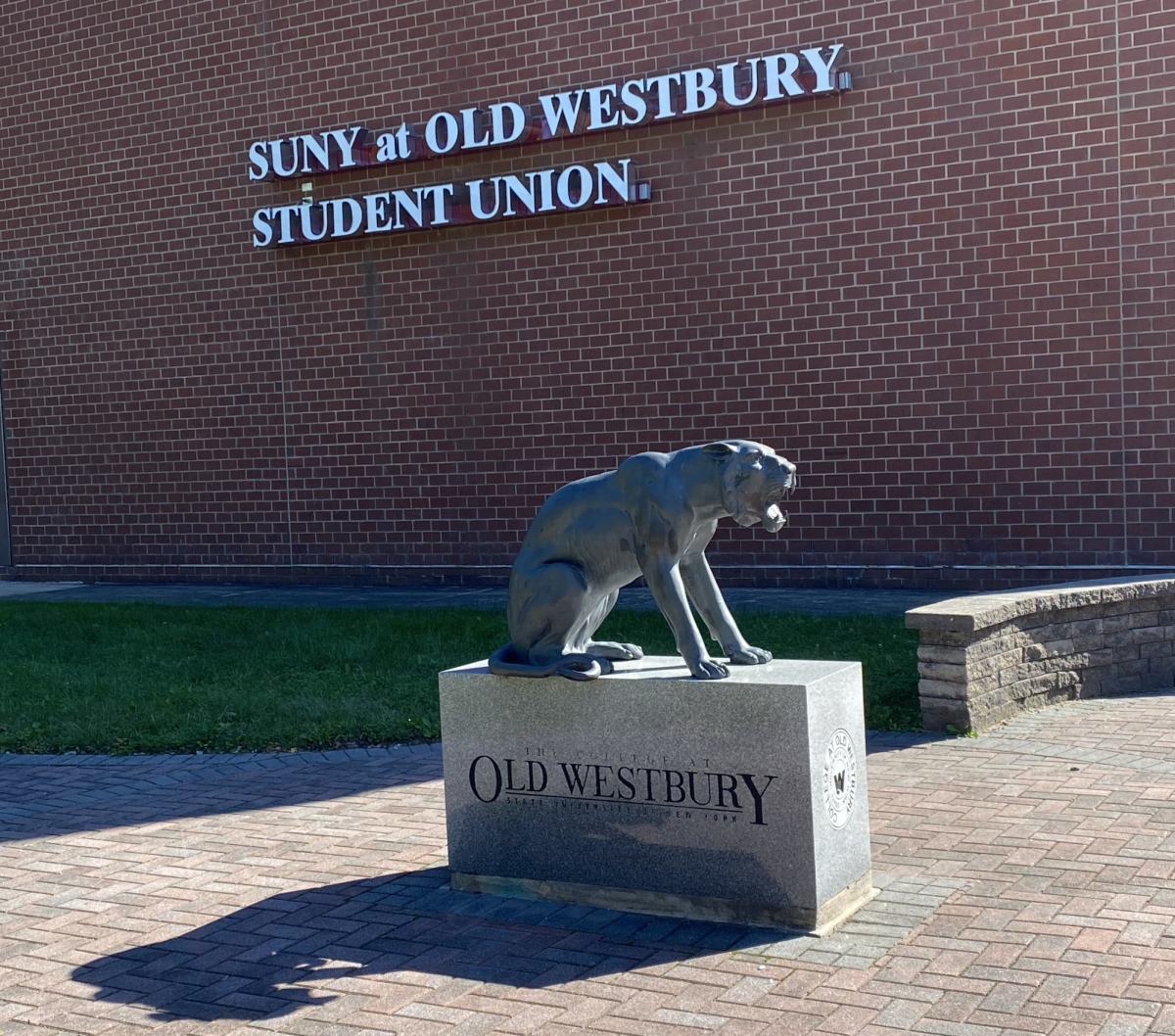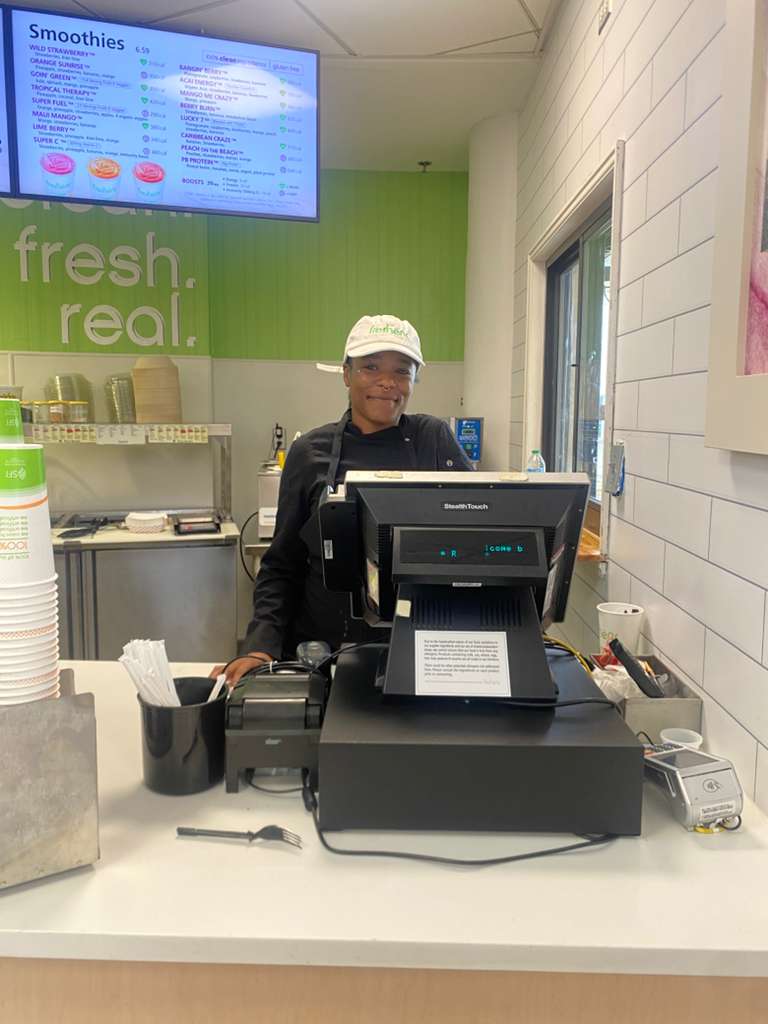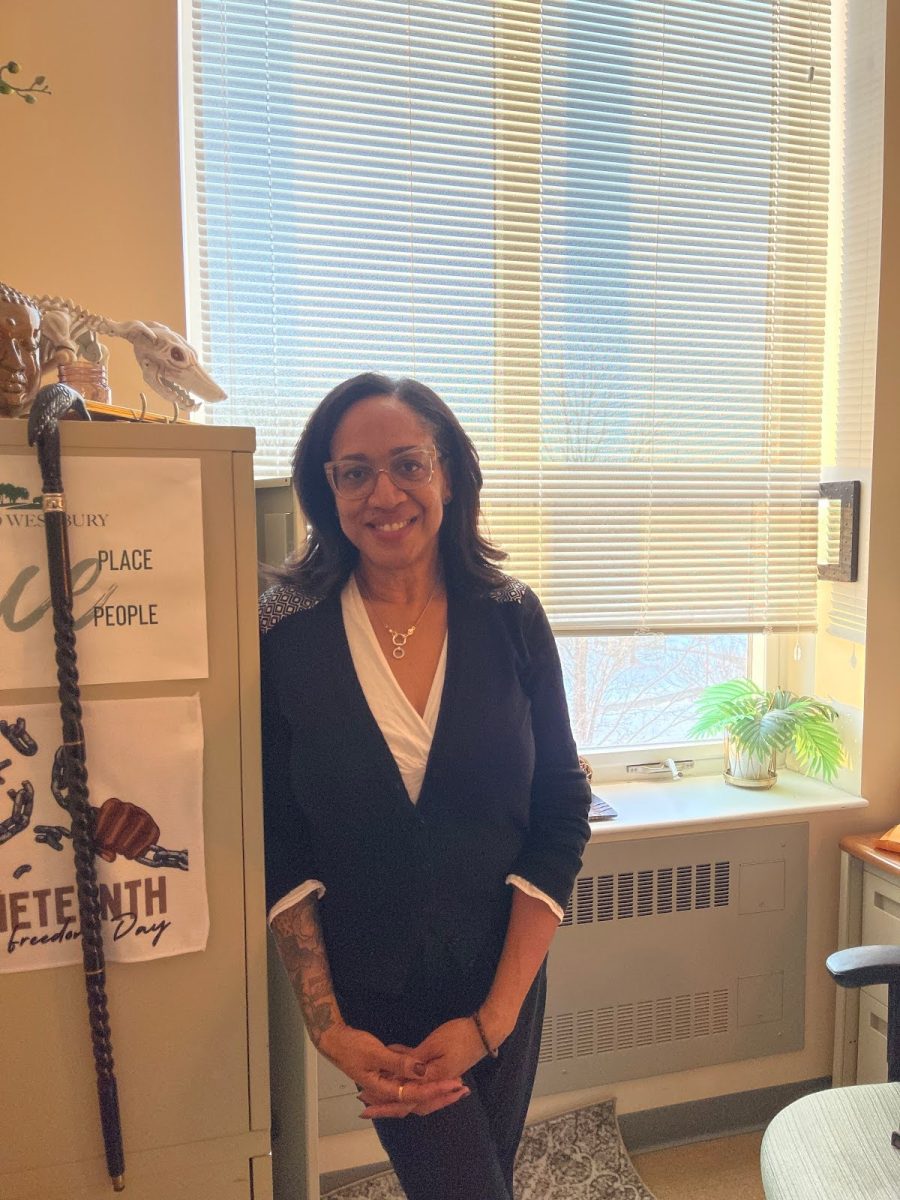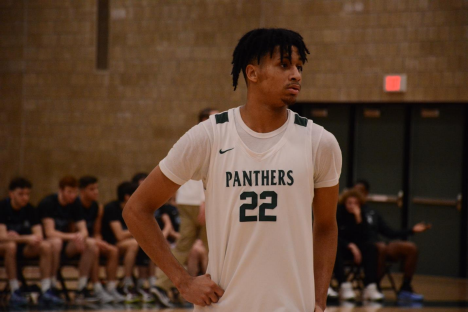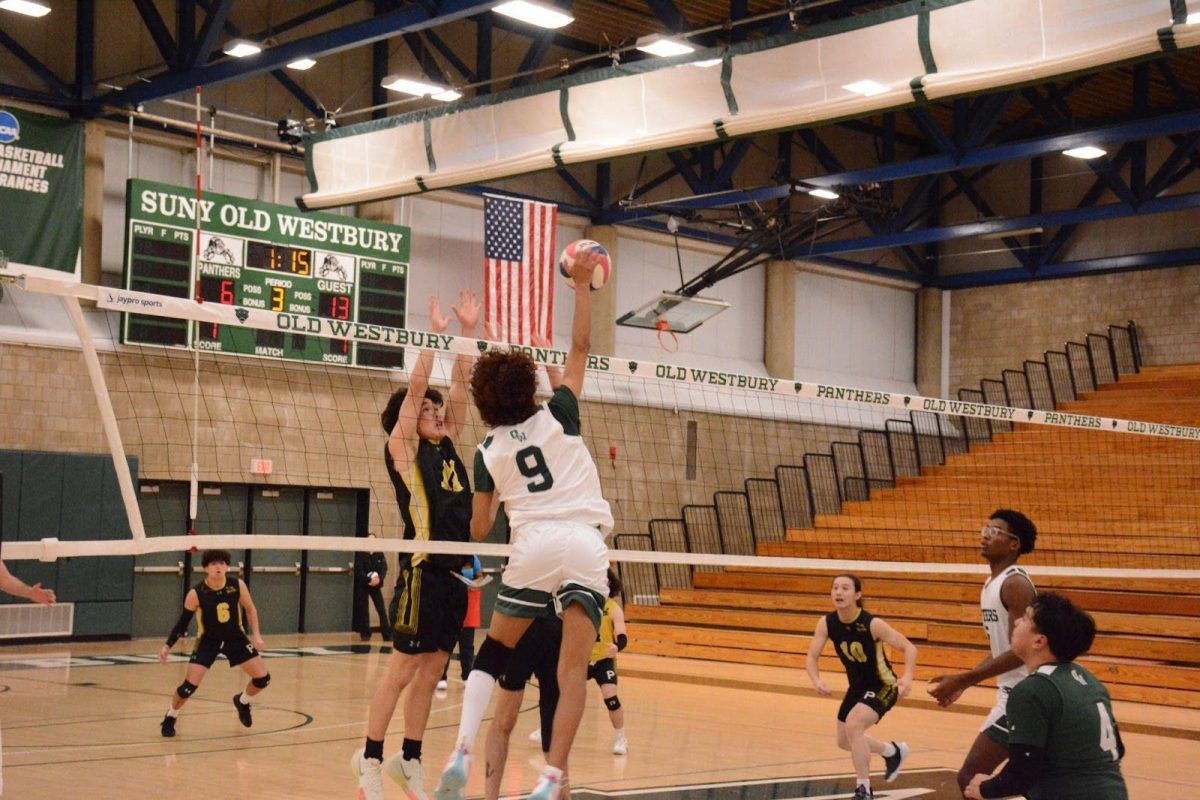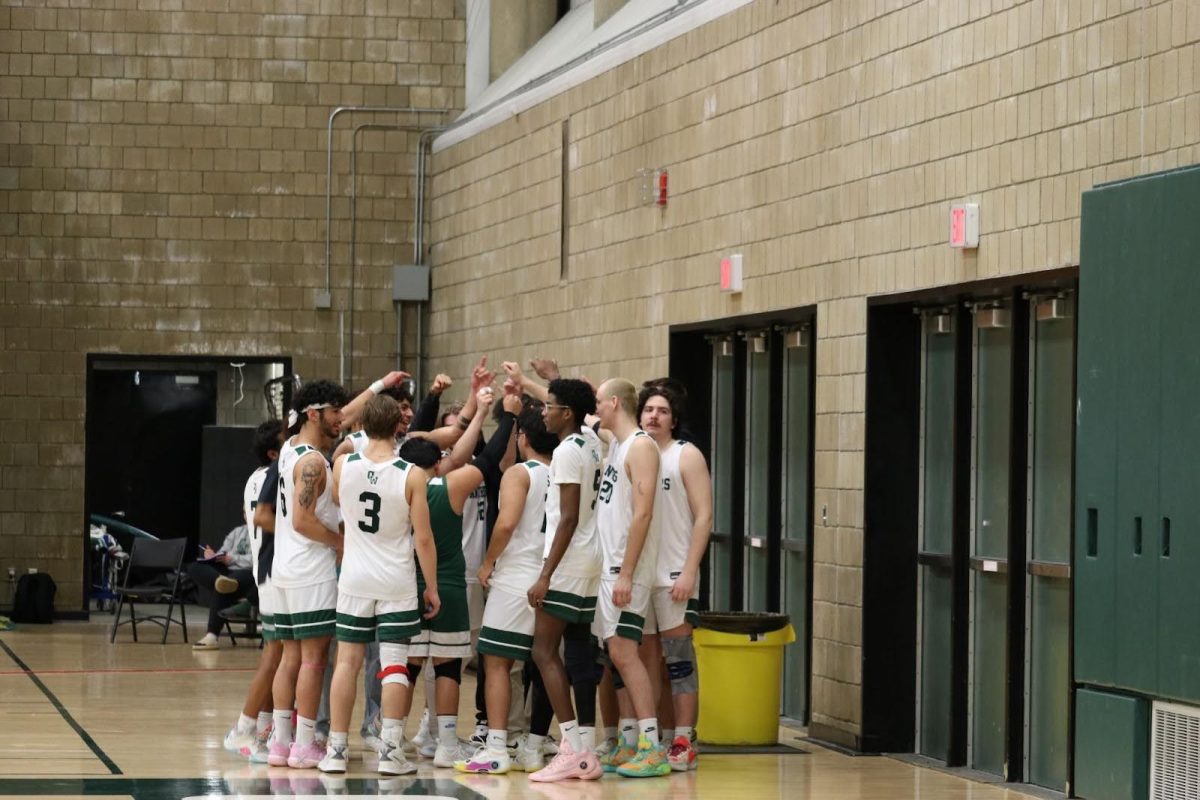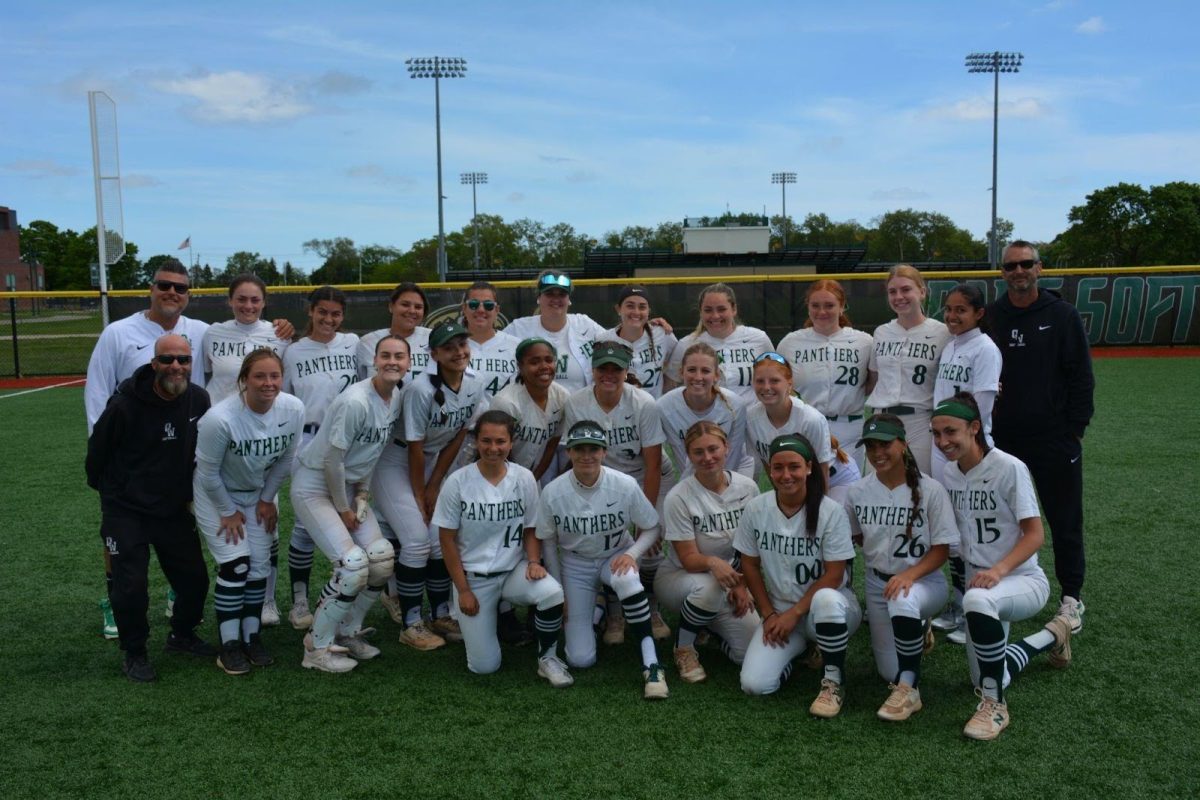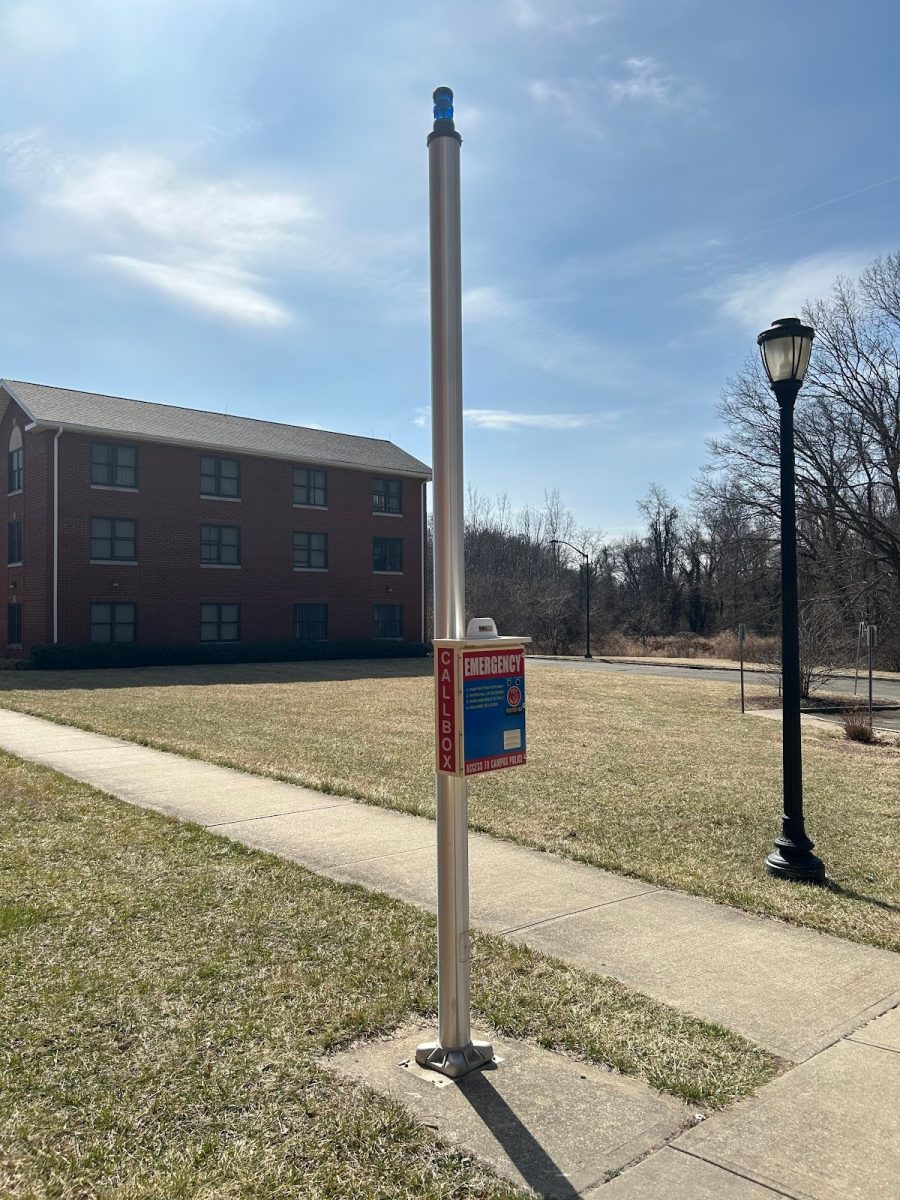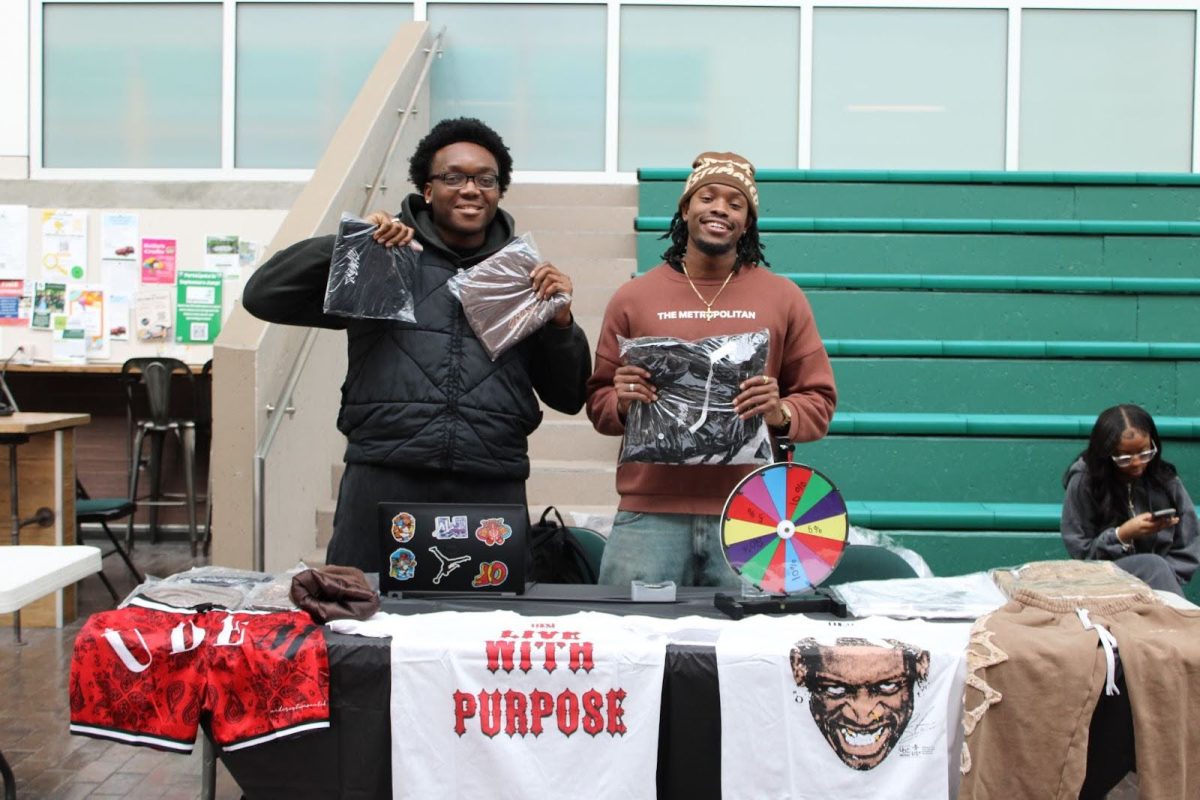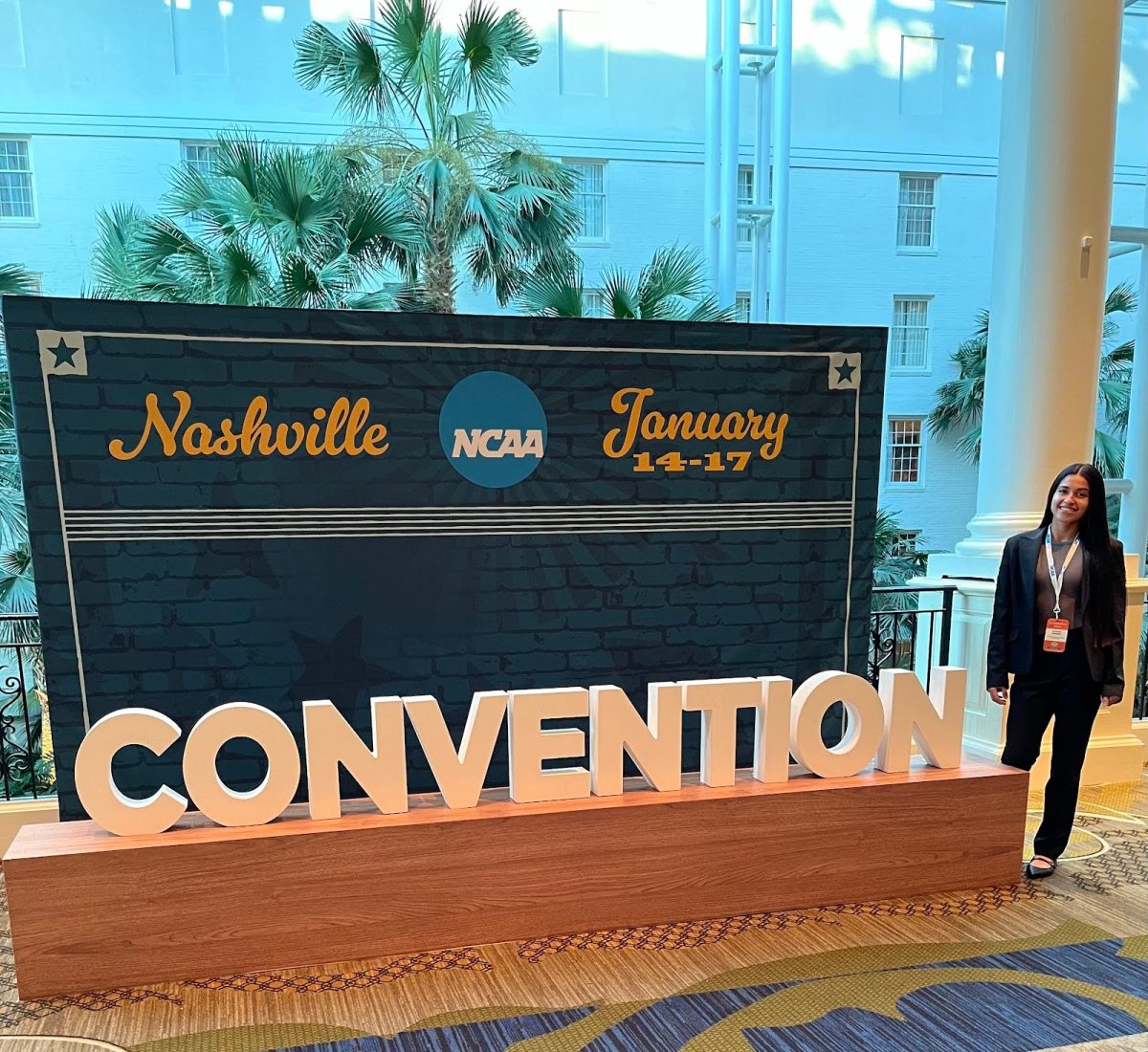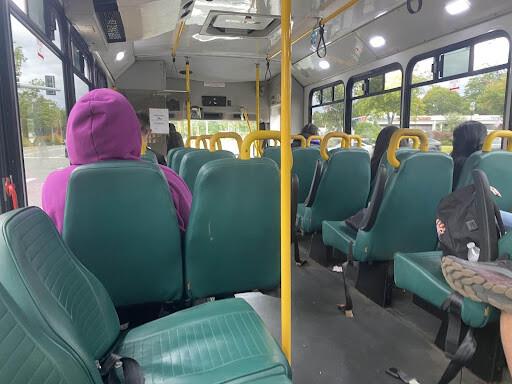On September 10th, Old Westbury hosted royalty. Sultan Mouhammad-Nabil Mforifoum Mbombo Njoya, accompanied by his entourage, graced the Duane L. Jones Recital Hall in the Campus Center. The historic event was little more than an interview, conducted by professor Sylvie Kande, with a brief introduction about the importance of the Sultan’s recent ascent to the throne.
Njoya is king of the Bamum people, a group who have roots in west Cameroon. While one might think that his royal duties end at the Atlantic ocean, this couldn’t be further from the truth.
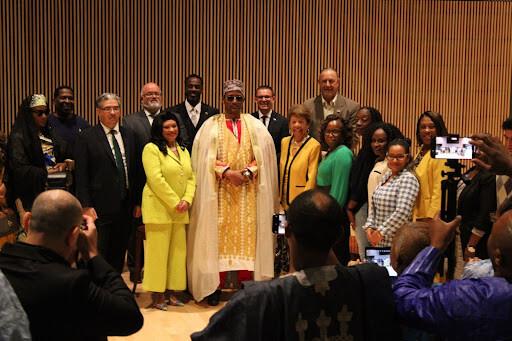
O.W. Faculty and Allumni take photo with the Sultan
“I come to commune with the community,” Njoya said. Tradition seems to dictate that the Bamum king must visit his people, and he has chosen to visit the world to meet with the diaspora.
The recital hall was filled with students, faculty, and alumni, who simply couldn’t pass up the opportunity to see royalty. An introductory video played with a translation from the speaker offering insight into Njoya’s importance.
“Bamum people are the tip of my spear,” Njoya says in the video. With the Cameroon population being mostly young it’s significant that the new sovereign is 28 years old, better reflecting his people.
After the video, Njoya walked, donned a long robe and sunglasses, and took his seat across from Prof. Kande. O.W. President Sams gave a small speech about the significance of the King’s visit, and what it could mean for the university. Hints at a foreign exchange program were dropped, but were expanded upon later.
This isn’t the first time Njoya’s visited the United States. He had attended St. John’s University in Queens. “We don’t hold that against you,” Sams joked in his introduction.
“Being in the U.S. as an African is different than being in any part of the world,” Njoya said. “Americans try to understand other people. When I came it was easier to learn and connect with other people.”
Topics in Prof. Kande’s interview centered on the history of the Bamum kingdom. Njoya’s ancestor, Sultan Ibrahim Njoya, developed a written script which acted as a form of anti-colonial resistance. “We only read our story written by other people,” Njoya continued. “The king was fighting to preserve his people.”
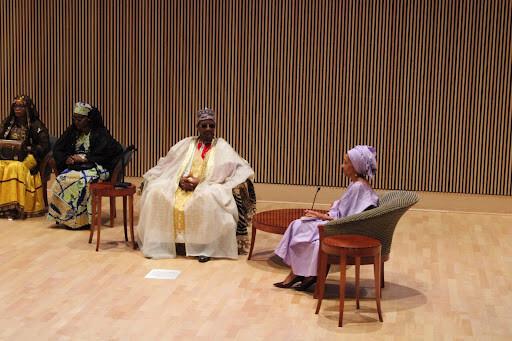
Sultan Njoya (left) and Prof. Kande (right) during interview.
Sams concluded the public event with a question of his own: “What should [students] think about when they move cross-cultural borders?” Njoya paused for a moment. “Are you preparing them to come to Cameroon?”
A smaller meeting was held immediately after the first, but this one was closed to most students. The only students in this second meeting were myself and two others from the Media Innovation Center. The few seats taken were filled by administration and cabinet members. Sams’ words at this meeting were to the point, overtly asking about the possibility of a foreign exchange program.
Njoya said himself that he is very open to the idea of not only students attending school in Cameroon, but also O.W. faculty going there to teach. Feeling out the King’s interest for educational programs seemed to be one of the main goals of the visit.
As a part of O.W. ‘s student media apparatus, I was told by the higher-ups (in an email before the meeting) that if I were to ask any questions they must not be political. I also had to turn in a list of questions to be approved. That got me thinking: what could possibly be happening in Cameroon that political questions are rejected?
Here’s a short list of what I thought were the most compelling quirks of Cameroon’s politics; the president, Paul Biya, is 91 years old and has been in power since 1982. Cameroon’s Rapid Reaction Force (shortened to the French name BIR) is trained and equipped by Israel. In the North-West region, in 2022, government counter-insurgency operations left homes burned, people dead, with attacks on students and teachers.
No nation is perfect, and it’s even easier to find similar stories occurring within the U.S. But If the end goal is to send faculty to Cameroon and provide students with a foreign exchange program, then the least they could do is be open about what is happening within that country. Having said that, I don’t think Sams or the administration were trying to mislead students, instead trying to maintain cordial relations with Njoya and progress the potential exchange program.
All in all, Njoya’s visit was certainly noteworthy for what it could mean for the future of O.W.


